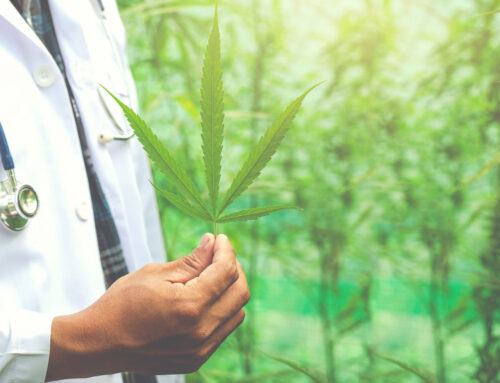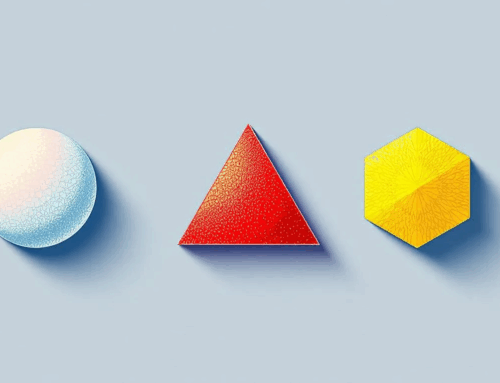Cannabidiol, also known as CBD, has become a popular topic in the health industry, especially in the medical marijuana topic. It’s a natural substance found in the cannabis plant, and People use it for its potential relief from pain, anxiety, inflammation, and sleep problems. It is widely recommended as it does not make you feel high, like traditional medicine or any other drug. If you are interested in natural health remedies for your health problems such as pain, anxiety, PTSD, etc., And living in places like Mississippi, where medical marijuana is available through a medical marijuana card, it’s more important than ever to understand how CBD affects the ECS.
What Is the Endocannabinoid System?
The endocannabinoid system, often referred to as the ECS, operates quietly behind the scenes, helping our bodies stay in balance. Think of it as a smart traffic cop; when mood, sleep, hunger, memory, immunity, or pain levels fluctuate, the ECS steps in to keep everything moving smoothly. It learns what the body needs in real time and reallocates resources so that the busy part doesn’t disrupt the rest. The entire setup consists of three main components: tiny, plant-like molecules known as endocannabinoids; specialized docking stations called receptors; and rapid cleanup enzymes. The two heavyweights, anandamide and 2-AG, appear only when the body requests them. Once released, they bind to CB1 receptors in the brain and CB2 receptors in the immune system, gently modulating stress signals, boosting pleasure, or alleviating pain. As soon as their job is done, speedy enzymes mop them up, restoring balance before any drama can spill over.
What Is CBD?
CBD is one of more than 100 active compounds found in the cannabis plant. Unlike THC, which causes the feeling of being “high,” CBD does not have any psychoactive effects. This makes it a popular choice for people who want the possible health benefits of cannabis without the mind-altering side effects.
CBD is often extracted from hemp, a type of cannabis that contains very low levels of THC. In Mississippi, where medical marijuana is legal for certain conditions, people can access CBD-rich products through a medical marijuana card. These products may help with chronic pain, seizures, anxiety, and more.
Today, CBD is available in various forms, including oils, tinctures, gummies, creams, and capsules. Some people use it daily, while others turn to it when dealing with specific health problems. But how does CBD work in the body? That brings us back to the endocannabinoid system.
How does CBD interact with the Endocannabinoid System?
CBD and THC affect the body in different ways. THC binds directly to CB1 receptors in the brain, which is why it causes a high. In contrast, CBD does not attach to these receptors. Instead, it influences the endocannabinoid system (ECS) in more subtle ways.
One primary way CBD supports the ECS is by inhibiting the breakdown of a vital endocannabinoid called anandamide. This substance is known as the “bliss molecule” because it is linked to feelings of happiness and calm. The body usually breaks down anandamide quickly using an enzyme called FAAH. CBD blocks this enzyme, allowing more anandamide to remain in the body. This can enhance mood and ease pain.
CBD also affects how CB1 receptors respond to other cannabinoids. It can make these receptors less sensitive to THC, which is why some people use CBD to lessen THC’s side effects, like anxiety or a fast heartbeat. In this way, CBD acts more as a modulator than a direct activator.
In addition to the ECS, CBD interacts with other bodily systems. It activates receptors linked to serotonin, which is crucial for regulating mood and stress. It also affects TRPV1 receptors, which play a role in controlling pain and inflammation. These actions explain why CBD can help with various issues, from anxiety relief to reducing muscle soreness.
What Is the Impact of Cannabis Chemicals Flooding the Endocannabinoid System?
Using cannabis products with THC can overstimulate your endocannabinoid system. THC binds to CB1 receptors in the brain, resulting in potent effects. This can be beneficial in small doses for specific medical issues, but using large or frequent doses can disrupt the system’s balance.
Over time, too much THC can cause your body to reduce the number of CB1 receptors or make them less sensitive. This increases your tolerance, meaning you need more THC to feel the same effects, and it can disrupt how your natural endocannabinoids work. On the other hand, CBD helps the endocannabinoid system by prolonging the presence of natural endocannabinoids and modulating how receptors respond without overstimulating the system. This makes CBD safer for long-term use.
In places like Mississippi, where medical marijuana is legal, patients should know these differences: THC can relieve severe symptoms, while CBD offers a milder, balanced option. Both should be used with guidance from a doctor through a medical marijuana card.
The Role of CBD in Medical Marijuana Treatments
In Mississippi, people can have a medical marijuana card. This card allows them to buy legal cannabis products that have high CBD and low THC. These products can help with serious health issues like epilepsy, chronic pain, multiple sclerosis, and PTSD.
CBD-rich products are a favorite among many patients because they can help treat various ailments without causing a high. This is helpful for older adults who have not yet lost the need to remain awake during the daytime. Most doctors advise using CBD and then recommending the comparatively slightest amount of THC in case it is necessary. This moderate solution is only a component of customized care provided by the program of medical marijuana in Mississippi.
Patients must meet with a certified doctor, provide their medical records, and apply through the state program to receive the card. In the event of approval, they will be able to visit up-to-date dispensaries and select products relevant to their specific health-related concerns.
Why Supporting the Endocannabinoid System Matters?
The endocannabinoid system (ECS) sits at the center of nearly every primary process in your body. When it runs smoothly, you hardly notice it; you drift off to sleep easily, the pain feels milder, and little surprises don’t push you over the edge. Yet, if the ECS becomes disrupted by illness, stress, or an injury, many familiar daily struggles can resurface.
Giving the ECS a boost with CBD may nudge that system back toward balance. That’s one reason folks are turning to CBD for everyday tension, sharper focus, and a general sense of wellness. For more serious issues, pairing CBD with a doctor’s advice and a medical marijuana card opens the door to stronger, precisely dosed products.
Although scientists are still gathering data, early research suggests that CBD may protect the brain, stabilize the immune response, and mitigate harmful inflammation. More proof will come with time, yet many users already say they feel the difference after adding CBD to their routine.
Conclusion
CBD is more than just a health trend. It is a helpful, plant-based option that works in harmony with your body’s endocannabinoid system to support balance and overall well-being. Unlike THC, which can activate receptors and cause side effects, CBD gently boosts natural processes and calms overactive systems.
For residents in states like Mississippi, where medical marijuana is legal, getting a medical marijuana card allows you to access trustworthy products and expert advice. If you are dealing with chronic pain, stress, or another issue, learning how CBD works in your body can help you make better health choices.
Always consult a doctor before starting any new supplement, especially if you are considering cannabis-based treatments. With the right approach, CBD may become a helpful part of your health journey.
FAQs
How does CBD work with the endocannabinoid system?
CBD interacts with the endocannabinoid system (ECS) by indirectly affecting cannabinoid receptors (CB1 and CB2). It helps regulate mood, sleep, pain, and immune function without binding directly to the receptors like THC.
How does CBD interact with your body?
CBD affects various systems in the body including the ECS, serotonin receptors, and immune response. It helps reduce inflammation, anxiety, and pain, promoting a calming effect without the high.
How long does CBD stay in your body?
CBD can stay in your body from 2 to 5 days, but this varies based on dosage, frequency of use, metabolism, and body type. In some cases, it may last up to a week.
How do cannabinoids interact with the body?
Cannabinoids interact with the ECS by binding to or influencing CB1 and CB2 receptors. This interaction helps regulate functions like pain, mood, memory, appetite, and immune response.
Why does CBD make you less high?
CBD doesn’t produce a high and can actually counteract THC’s psychoactive effects. It binds differently in the brain, balancing the effects of THC and helping reduce anxiety or paranoia.





